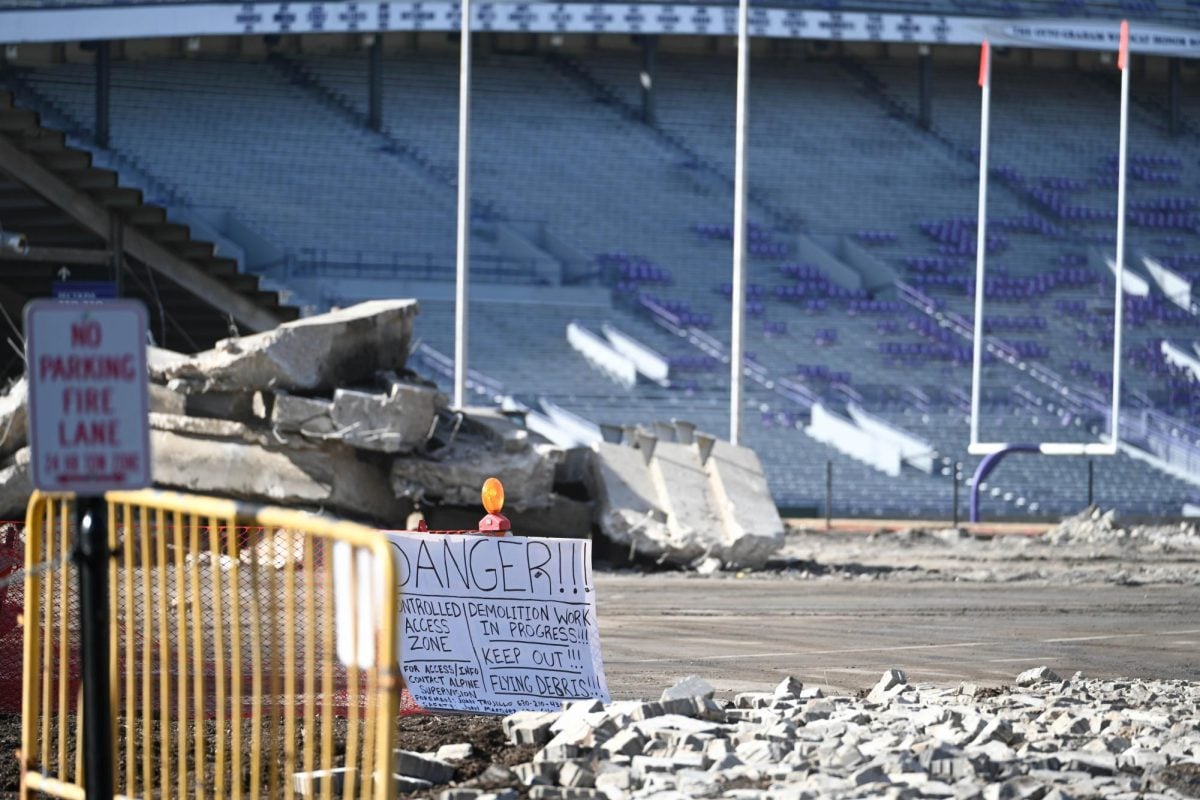Ahead of a mid-April court hearing, Ryan Field neighbors and the Most Livable City Association have pushed back on Northwestern and Evanston’s motion to dismiss three of four counts from their lawsuit over the stadium’s zoning change, which allows public-facing concerts at the venue.
MLCA and 13 stadium neighbors filed a civil complaint against Evanston in November, alleging the city deprived them of due process and violated its municipal code and state regulation in approving the rezoning of Ryan Field to allow concerts.
The complaint asks the Cook County Circuit Court to block the approved rezoning on four counts. First, plaintiffs allege that the city — through “arbitrary and capricious actions” including ignoring the Land Use Commission’s recommendations — deprived them of their right to “object to commercialization” of the Ryan Field district.
They also allege these actions prevented them from defending their “right to quiet enjoyment of their property.”
The other three counts revolve around the city’s alleged failure to follow the rezoning process. One claims six votes among the nine councilmembers and Mayor Daniel Biss was necessary to pass the rezoning in this case as a majority. Biss broke a 4-4 tie.
The city moved to dismiss this and two other counts from the case in February. In court documents supporting their dismissal motions, the city claims the only relevant definition of “majority” in the city code requires only five votes to pass ordinances — a rule that applies to zoning text amendments as well.
The other counts allege that the rezoning should have occurred through a map amendment instead of a text amendment based on Evanston’s zoning code, and the city did not follow state code when responding to residents’ opposition to the proposed zoning amendment.
NU, while not a direct party in the case, also intervened to dismiss the same counts as the city in March. The city and University are not currently seeking to dismiss the first count about deprivation of due process.
In court documents supporting their dismissal motions, the city and NU argue that MLCA and other plaintiffs have misinterpreted local and state zoning regulations.
As for the allegation that NU should have applied for a map instead of text amendment, the city and University contend a map amendment was necessary only if NU sought to change the physical boundaries of Ryan Field’s zoning district.
Since the University didn’t ask for that kind of redrawing, a text amendment sufficed, they wrote.
MLCA and stadium neighbors disagreed in a March 21 rebuttal brief to the dismissal motions. Holding concerts at Ryan Field changed the stadium land’s purpose so much that it “effectively created a new zoning district,” the plaintiffs wrote.
The city and University also argue that Illinois’ rule on how to approve a resident-contested zoning amendment does not apply because Evanston is a home-rule unit. The plaintiffs pushed back and said Evanston municipal code’s silence on how to process those protests means state law automatically kicks in, according to state Supreme Court precedent.
Beyond what Evanston and NU claim are misinterpretations of city and state codes, they also argue that the city’s alleged failure to follow its own requirements is too weak a reason to invalidate the approved Ryan Field rezoning.
Citing a 1988 state Supreme Court decision, they write that the court “lacks the authority to invalidate the (zoning) Amendment on the grounds that the City allegedly failed to follow the voting ‘requirements imposed by that body itself.’”
The stadium neighbors responded by arguing that the earlier state Supreme Court case — Landmarks Preservation Council of Illinois v. Chicago — specifically permits a court to invalidate the zoning because the plaintiffs allege violations of their Constitutional due process rights.
After another round of responses from Evanston and NU due April 4, the parties will attend a hearing about the dismissal motion on April 17.
Email: [email protected]
Twitter: @william2tong
Related Stories:
— Most Livable City Association files complaint, asks Cook County to invalidate Ryan Field rezoning
— City Council approves NU Ryan Field rebuild plan after months of debate
— Ahead of final Ryan Field vote, residents, city officials remain divided over rezoning














